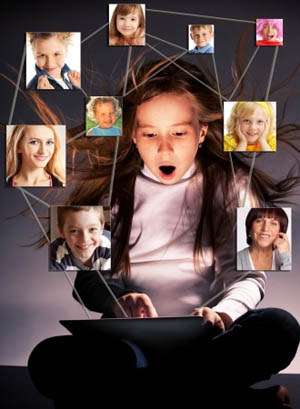Benefits
After School and Summer Programs
Well planned, supervised opportunities which offer structured programming, including academics, recreation, arts, and free time provide participants, families and communities a wealth of benefits. Studies show the benefits of after school and summer programming far outweigh any costs. Some of the more important benefits are listed:

1. After school programs keep children out of trouble and off the streets, providing appropriate adults supervision and guidance.
These programs provide supervision for parents who cannot regularly be with their children. When a child is attending an after school program or being tutored by an adult, the child is looked after as if he or she were still in school. Mothers and fathers normally don't end work before 4 p.m., and by this time kids have been out of school for a half an hour or more.
High-risk teen conduct transpires most often between 3 and 6 p.m. This is a time when youngsters are out of school and parents or guardians are still working. Unwatched and on their own, kids can get involved in a number of activities that may not be appropriate, or even participate in activities that can actually be very dangerous. That's when bad things can happen ... in an instant ... unexpected.
These programs give children additional certified adult guidance. When children see adults, who they idolize, do something they would like to do, they become more receptive to learning. Kids are very impressionable. They desire to be like adults they admire whether those adults be teachers, tutors, or instructors.
After school programs keep kids safe, help working families and inspire success among youth.
Kids with nowhere to go, end up….going nowhere. Kids with somewhere to go, end up…. going places!
2. After school programs help students improve upon the lesson they learned during the school hours, provide opportunities for academic enrichment, and an outlet for creativity.
The school day is divided between many activities. With learning many subjects, recess, and lunch, the allotted time may not be enough for children to fully master the concepts of each subject. Academic based programs give children the chance to practice and build on what they learn in school. "Children involved in ASPs appear to spend more time in academic, enrichment learning, and adult-supervised play," (Mahoney, Lord, & Carryl, 2005, p.820). They provide many new enriching ways for children to learn, which makes it fun and enjoyable.
Children can actually learn something new, something that may not have been offered to them in school.
Kids who participate in after-school programs earn higher grades, have improved attendance, behave better in school and are more apt to graduate.
Many different activities can provide an outlet for creativity and problem-solving. Obvious choices are arts and crafts, music, performing arts, but other activities like sports and collecting can teach problem-solving skills. The best activities for your children are those that encourage their natural curiosity and interests.
3. After school programs help students to improve personality, maturity and self-confidence.
After school programs have an impressive influence on preventing adolescents from experimenting with drugs and other deviant behavior. This is simply because students are enjoying a productive activity and are being supervised during their attendance in the after school program.
It's no secret that the more a kid gets involved in excelling in activities they enjoy, the greater self-confidence they will develop in themselves. When a youngster regards an activity as valuable, that child will obtain a higher sense of accomplishment after achieving it.
The more kids learn, the less reliant they will become on others. Not only do children have more skills at their disposal, but they also have more self-confidence to accomplish and to attempt activities they may have otherwise hesitated to tackle.
When children learn new skills and engage in social activities, they become more self-confident. Learning social skill like cooperation, negotiation, and conflict resolutions in a fun and relaxed environment will help them interact appropriately with others - a skill valuable in all aspects of life from home life to the workplace.
One advantage of a good after school program is that it widens a child's areas of interests. Children will be introduced to new things, sometimes interesting, sometimes challenging. Mastering a new art form or a new skill increases a child's self-esteem. It also builds their self-confidence and increases their own self worth. It may also introduce a child to new career options.


4. After school programs involving recreational activities provide exercise kids need.
These programs let children use their energy, relieve stress, and reduce the possibility of childhood obesity. In addition to exercise, recreational activities can add culture to a child's life.
After school programs teach kids new mental and physical skill-sets that are perceived as exciting and appealing. A soccer camp, for example, teaches skill sets that children want to acquire if only because some soccer star that they idolize possesses those same skills. A robotics program teaches kids how to assemble and program something that looks like a sophisticated toy, and one that they irresistibly want to play with. These examples have one thing in common; they are both fun and educational.
When children participate in sports and outdoor activities, they get good exercise and learn life-long habits of keeping mentally and physically fit. Combined with other life skills like learning how to eat right, will ensure that children know the basics of living a healthy lifestyle.
Today, a large number of children are placed into recreational after school programs so that they reduce weight and remain healthy. There are numerous children below the age of 16 who are considered obese. Parents who are unable to successfully put their children on a strict diet may choose sports, physical activities and games to help burn fat in a healthy way. With cases of child diabetes on the increase, this has become a prime focus of many after school programs.
5. After school programs promote the opportunity for children to spend time with others, which enhances social skill development.
After school programs promote the opportunity for children to spend time with other children, as well as a variety of adults. This exposure enhances the child’s ability to get along better with other children as well as adults.
According to a study by psychologist Deborah Lowe Vandell PhD, after school programs help young people develop strong, positive relationships with both adults and peers in addition to provide prospects for youth to develop leadership and decision-making skills.
"Young people need the influence of caring adults and positive role models in their lives. Good after-school programs can accomplish that by helping youngsters develop the knowledge, skills and healthy habits to achiever their greatest potential." - US Secretary of Education Rod Paige and After school Advocate Arnold Schwarzenegger at the 2003 After school Summit hosted by the US Department of Education and Arnold Schwarzenegger.
Teamwork is increasingly more important in home life as well as at work. Team sports require children to work together to achieve a common goal and remove the focus from the individual to the team. These aren't the only activities that teach teamwork, though. After school programs teach these important skills as well as some other activities like drama and dance.
Improving social skills is another great advantage of after school programs. Children get to meet others who share their interests as well as being exposed to other children from different backgrounds with different interests. The potential for making new friendships and discovering new interests is like another door opening up new paths to the future.

6. After school programs provides children with prompt feedback on activities they regard as important.
Getting feedback immediately on activities is very important for kids because it helps them find out how well they did. They don't know unless you tell them so. As adults, often we can reward ourselves for something we did that was good, but kids are still learning.
Prompt feedback provided to a child offers the child the opportunity to get immediate guidance and assistance when/where necessary. Students are more likely to have a complete understanding for what is being covered, as well as having the opportunity to ask questions before moving on.
7. After school programs offer students many opportunities to have fun!
When kids are having fun carrying out an activity they find intriguing and fun, they are more likely to maintain full concentration for the duration of the activity and subsequently learn and retain more.
After school programs can offer intangibles such as - the opportunity to engage in activities that help young people realize they have something to contribute to the group; the opportunity to work with diverse peers and adults to create projects, performances, and presentations that receive accolades from their families and the larger community; and the opportunity to develop a vision of life's possibilities that with commitment and persistence, are attainable.
Give them a break. School can be very tedious and sometimes dull. After school programs give kids a breather from the treadmill of school, and provide a little fun into their educational training. We often associate kids with fun and play. Having fun is a relevant part of a child's life because it helps develop a child's character and ingenuity.

8. All students can/do benefit from after school programs.
All students can and do benefit from after school programs. While many parents enroll their child in sports, music, and education classes, other parents lack the resources to do. Organized after school programs offer all students the opportunity to get ahead, stay ahead, enrich his/her academic progress, as well as enhance social and personal skills.
9. After school programs help working families.
Today, millions of children return to an empty home after school. When the school bell rings, the anxiety for parents often just begins. They worry about whether their children are safe, whether they are susceptible to drugs and crime. After-school programs alleviate childcare worries for working parents.
The proportion of single-parent families and of families with two parents working outside the home has grown dramatically in the last few decades. According to 1998 figures from the U.S. Bureau of the Census, nearly two-thirds of school-age children and youth live with a single employed parent or two parents who are both employed. These families need supervision for their children beyond the hours of the traditional school day, and particularly between the hours of 3:00 p.m., when dismissal occurs, and 6:00 p.m., when most parents arrive home from work.
Parents who are concerned about their children’s after-school care miss an average of eight days of work per year. Decreased worker productivity related to parental concerns about after-school care costs businesses up to $300 billion per year. (Brandeis University, Community, Families and Work Program, 2004 and Catalyst & Brandeis University, December 2006)
Families able to enroll their children in good programs indicate that their children are safer and more successful in school. These families also develop a greater interest in their child's learning. In addition, children develop new interests and skills and improve their school attendance. Both children and school systems benefit from after-school programs, which lessen the need to retain children in grade due to poor academic progress and to place children in special education.
Today's society expects expertise in just about everything. Parents can no longer take the attitude that learning from textbooks is enough for the overall development of their children. Our world has grown to demand specializations and skills above and beyond what can be learned from books. Every parent wants to give our children every opportunity to succeed. Good, quality after school programs provide these important opportunities.
After school programs can help keep teenagers busy. He or she can find many paths away from destructive habits like drugs and alcohol. Surveys indicate that children who are kept busy through diverse, absorbing activities are less prone to drug and alcohol abuse, depression and burnout. Significant increases in achievements, school attendance and a reduction in school drop out rates are other advantages of good after school programs.
After-school programs are often seen as an effective way to keep children safe and supervised. Experts also believe that the after-school hours are an opportunity to further engage students in academic, social, and physical activities. As former U.S. Secretary of Education Richard W. Riley noted, "Children's minds don't close down at 3 p.m." (U.S. Department of Education, 2000).
10. After school programs benefit the community.
After school programs are shown to reduce juvenile crime, increase safety, bring neighbors together, and foster community pride and ownership.
After school programs are proven to lower juvenile crime rates and generally improve neighborhoods and not just by keeping youth occupied for a few hours everyday. After school programs help young people succeed by providing academic support and the chance to form meaningful relationships with adults from their community, and by encouraging them to get involved in their neighborhood through service projects. This support, these relationships and the benefits to the community create a mutually beneficial relationship of immeasurable value.
Evaluations of the first two years of The After-School Corporation (TASC) programming found that students felt that participating in after school improved their ability to maintain self-control and avoid fights. - Friedman & Bleiberg, 2002.
Children, families, and communities benefit in measurable ways from high-quality after-school and extended learning programs. As an alternative to children spending large numbers of hours alone or with peers in inadequately supervised activities, well-planned and well-staffed programs provide safe havens where children can learn, take part in supervised recreation, and build strong, positive relationships with responsible, caring adults and peers. Communities fare better when their young people are occupied in meaningful, supervised activities after school. Adolescents are less likely to engage in risky behaviors, such as tobacco use, when they have after-school programs to go to. Children watch less television (which has been associated with aggressive behavior and other negative consequences). Finally, injuries and victimization decline in communities previously plagued by crime.
After-school programs also contribute to raising children's self-confidence as well as academic performance. Both teachers and parents report that children who participate in after-school programs develop better social skills and learn to handle conflicts in more socially acceptable ways. Children indicate that they have higher aspirations for their future, including greater intentions to complete high school and attend college. Participants in programs that focus on helping children prepare for college have gone on to do so in impressive numbers.
